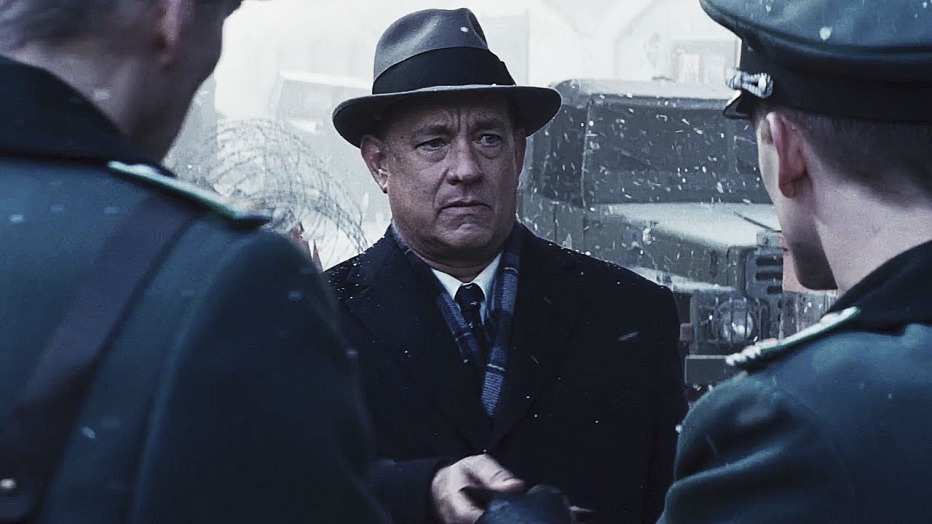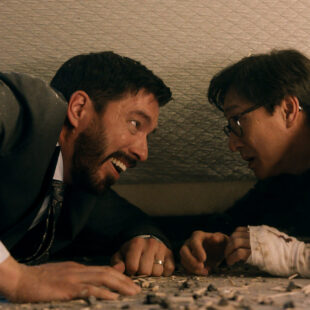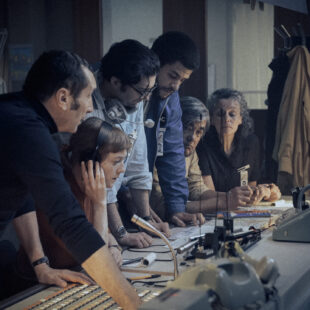Bridge of Spies
The soft side of espionage…
Steven Spielberg and Tom Hanks team up once more for this biopic based on the life
of American lawyer James B. Donovan, portrayed beautifully by Hanks.
From the opening scene, we notice something different about the film from other
Spielberg features. Most of his films are always told in two ways, visually and
through the powerful scores of each feature. In Bridge of Spies, the opening act is
virtually silent and instead of music, Spielberg opts for using the natural sounds of
New York. Giving the audience a more voyeuristic view of the life of Rudolf Abel
(Mark Rylance). It begins with Abel leaning back into a mirror as he paints a picture
of himself. His reflection is as emotionless as the picture he paints with the only
distinguished difference being the color of his shirt. After Abel silently takes a call,
he leaves his small apartment and sets himself on a bench along the Hudson River to
continue painting. It is upon his return that his true persona is revealed as he pries
open a hallowed out coin revealing a coded piece of paper and a wide shot shows
the trinkets of double-agency items around the room. This masterfully shows the
difference between the espionage world of the two countries.
The cinematography beautifully demonstrates this by gliding through a mass of men
in suits holding newspapers and Abel’s simplistic way of life. When the feds finally
capture him at his home, the first words of the film are spoken.
We are introduced to James Donavan, the lawyer who would come to defend Abel,
as he talks to a counterpart about an insurance claim with a sharp tongue
disclaiming the opposing lawyer and showing the masterful writing of the script
co-written by the Coen brothers (No country for Old Men, Unbroken). Donavan
becomes “the man under pressure” as he is called into duty by his firm and
government to represent Abel, an alleged Russian informative and spy. Donovan is
asked by his boss (Alan Alda) to serve as legal council to Abel so to make sure that
the judicial process runs appropriately.
Bridge of Spies is full of star power and the acting lead by Hanks recalls the movie
icons of cinema’s golden age. Hanks plays Donavan to perfection and could easily
be, in my opinion, an Oscar contender for both “Best lead actor” and “Best Film”.
Although this is not as emotionally engaging as “Schindler’s List or Saving Private
Ryan”, this is by far one of his best in recent years. The film does lack a little
intensity and tries to make up for it about half way through the film, by inserting an
action sequence of when pilot Frances Gary Powers’ (Austin Stowell) plane is shot
down and captured by the Russians. Although it is a small part, it feels a bit out of
place and you never really develop much attachment to his character.
Since his start in the 1970’s Spielberg has become one of the most influential and
essential cinematic historians. Bridge of spies continues this legacy by giving the
audience a little insight into the human aspect of the cold war and not jumping into
conclusion too quickly about good or evil, but rather judging persons by their
character and reminding us that everyone deserves a fair trial.
8 out of 10 stars
by Hiram Trillo



